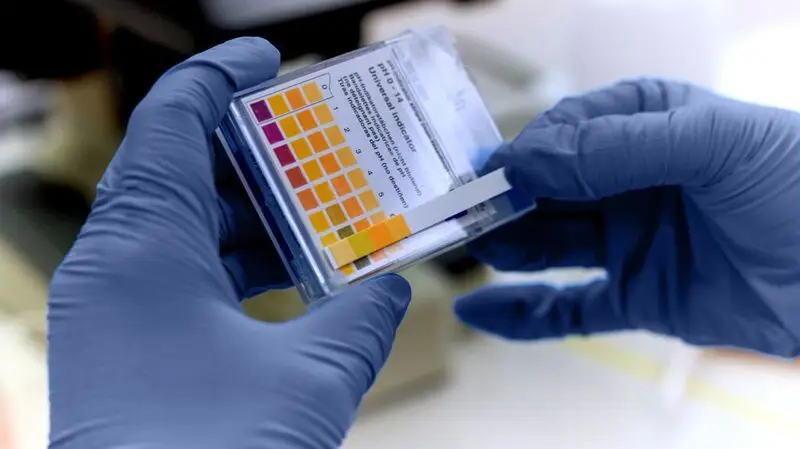
- Early detection of prostate cancer remains a major clinical challenge due to the lack of reliable biomarkers, despite the disease being highly treatable when caught in its early stages.
- Now, researchers have identified a new set of urine-based biomarkers that can accurately detect both the presence and severity of prostate cancer.
- The study combines artificial intelligence with detailed genetic analysis and could potentially offer an alternative to current PSA testing.
Prostate cancer is one of the most frequently diagnosed cancers in men yet is often highly treatable when detected early. It originates in the prostate gland, located between the bladder and the penis.
While the exact cause remains unknown, the likelihood of developing the disease increases with age.
One reason early detection is challenging is the absence of reliable biomarkers that can accurately indicate the onset of the disease.
This new research, published in the journal Cancer Research, suggests that early-stage prostate cancer can be detected using a simple urine test.
Researchers created digital models of prostate cancer by analysing mRNA activity across all human genes in thousands of individual tumour cells, each classified by cancer grade and location.
They used artificial intelligence to examine these models and identify proteins that could act as potential biomarkers.
These biomarkers were then tested in blood, prostate tissue and urine samples from nearly 2,000 patients.
First author Martin Smelik explained the key findings to Medical News Today.
“The key finding of this article is that prostate cancer can be effectively identified by analyzing the expression of candidate biomarkers in urine,” Smelik explained.
“This approach [via a urine sample] outperforms the current blood tests based on PSA but at the same time keeps the advantages of being non-invasive, painless, and relatively cheap.”
— Martin Smelik
A specific set of urine-based biomarkers showed strong potential in detecting both the presence and severity of prostate cancer with greater accuracy than PSA, the current standard blood-based marker.
A PSA test is a simple blood test that checks the level of a protein called prostate-specific antigen, which is made by the prostate.
High levels of PSA can be a sign of prostate cancer, but they can also be caused by other conditions like an enlarged or inflamed prostate.
Plans are now in place to conduct large-scale clinical trials to further validate the findings.
In addition, discussions are underway to include the novel biomarkers in a UK-wide prostate cancer study to speed up testing and implementation.
“This publication brings hope for more efficient screening programs within next few years, which might ultimately help to prevent and treat prostate cancer. While this study was focused specifically on prostate cancer, we believe that some of the methods could be generalized to other cancers as well, which we would like to try in our future studies.”
— Martin Smelik
These improvements may also help reduce the number of unnecessary biopsies in men who do not have the disease.
Milan Sheth, MD, quadruple board certified in internal medicine, hematology, oncology, and palliative care, at MemorialCare Todd Cancer Institute at Long Beach Medical Center in Long Beach, CA, who was not involved in the study, said that this is an impressive study utilising artificial intelligence to find alternative methods and bio markers for diagnosing prostate cancer.
“Early diagnosis and treatment are critical for preventing such complications. However, current methods for diagnosing prostate cancer utilize uncomfortable, and invasive approaches that can only be performed by a urologist.”
— Milan Sheth
“The findings from the current paper showed that specific biomarkers which are dynamic and more sensitive than PSA can actually be found in the urine,” Sheth told MNT. “Remarkably, the urinary bio markers demonstrated exceptional diagnostic precision, and we’re capable of distinguishing not only cancerous from non-cancer states but also indicating disease severity.”
“This discovery could potentially change the ways in which prostate cancer is not only diagnosed but can also be used as a more accurate screening mechanism, which we desperately need. And all this simply through a urine test,” Sheth said.
Ramkishen Narayanan, MD, board certified urologist and urologic oncologist and Director of the Center for Urologic Health at The Roy and Patricia Disney Family Cancer Center at Providence Saint Joseph Medical Center in Burbank, CA, agreed, saying that “this paper presents an exciting area of research.”
“With respect to prostate cancer, serum PSA has remained the only reliable ‘biomarker’ for nearly 50 years at this point. We are long overdue for additional biomarkers that can both detect prostate cancer and monitor prostate cancer progression.”
— Ramkishen Narayanan
Narayanan pointed out that “the study authors make note that urine may be an excellent modality for finding a reliable biomarker due to the ‘local fluids’ near cancer concept.”
“Urine is intimately associated with the prostate and a urinary biomarker for prostate cancer is an ongoing area of research worldwide,” he said.
“Spatial transcriptomics is unfortunately very expensive; therefore, a globally collaborative approach (such as the cancer genome atlas program) would be the most beneficial to the public,” Narayanan added.





